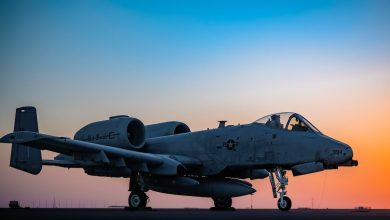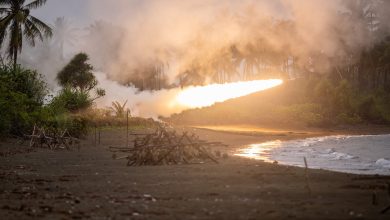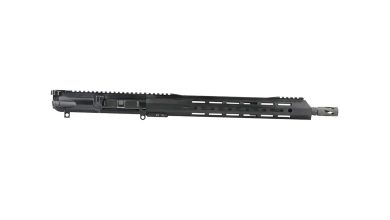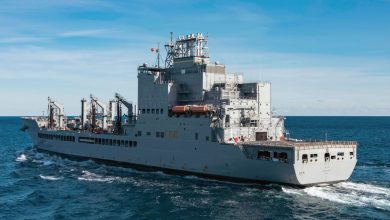USS Carl Vinson in Mideast ahead of Iran-US nuclear talks
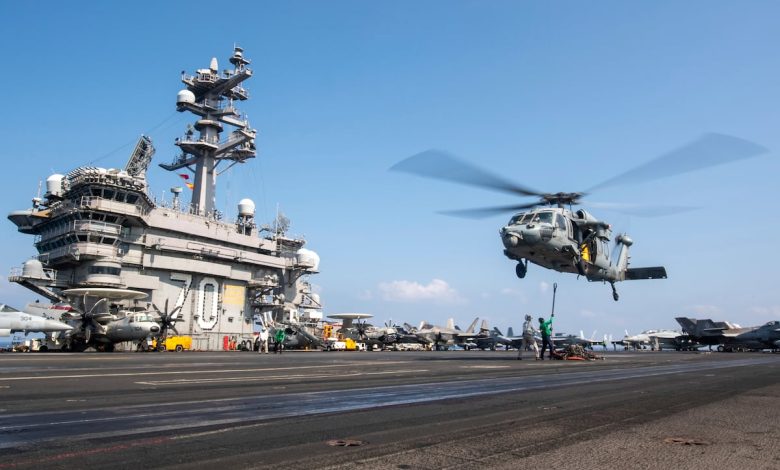
DUBAI, United Arab Emirates — A second U.S. aircraft carrier is operating in Mideast waters ahead of the next round of talks between Iran and the United States over Tehran’s rapidly advancing nuclear program, satellite photos analyzed Tuesday by The Associated Press showed.
The operation of the Carl Vinson and its strike group in the Arabian Sea comes as suspected U.S. airstrikes pounded parts of Yemen controlled by the Iranian-backed Houthi rebels overnight into Tuesday. American officials repeatedly have linked the monthlong U.S. campaign against the Houthis under President Donald Trump as a means to pressure Iran in the negotiations.
Questions remain over where the weekend talks between the countries will be held after officials initially identified Rome as hosting the negotiations, only for Iran to insist early Tuesday they would return to Oman. American officials so far haven’t said where the talks will be held, though Trump did call Oman’s Sultan Haitham bin Tariq on Tuesday while the ruler was on a trip to the Netherlands.
RELATED
The stakes of the negotiations couldn’t be higher for the two nations closing in on half a century of enmity. Trump repeatedly has threatened to unleash airstrikes targeting Iran’s nuclear program if a deal isn’t reached. Iranian officials increasingly warn that they could pursue a nuclear weapon with their stockpile of uranium enriched to near weapons-grade levels.
But even Iran’s Supreme Leader Ayatollah Ali Khamenei reportedly described the first round of talks as going “well,” while still couching his remarks Tuesday.
U.S. Mideast envoy Steve Witkoff, who represented America in last weekend’s talks in Oman, separately signaled that the Trump administration may be looking at terms of the 2015 nuclear deal that the president unilaterally withdrew from in 2018 as a basis for these negotiations. He described the talks last weekend as “positive, constructive, compelling.”
“This is going to be much about verification on the enrichment program, and then ultimately verification on weaponization,” Witkoff told Fox News on Monday night. “That includes missiles, the type of missiles that they have stockpiled there. And it includes the trigger for a bomb.”
He added: “We’re here to see if we can solve this situation diplomatically and with dialogue.”
Vinson joins Truman as second US aircraft carrier in Mideast
Satellite photos taken Monday by the European Union’s Copernicus program showed the Vinson, which is based out of San Diego, California, operating northeast of Socotra, an island off Yemen that sits near the mouth of the Gulf of Aden. The Vinson is accompanied by the Ticonderoga-class guided missile cruiser Princeton and two Arleigh Burke-class guided missile destroyers, the Sterett and the William P. Lawrence.
The U.S. ordered the Vinson to the Mideast to back up the carrier Harry S. Truman, which has been launching airstrikes against the Houthis since the American campaign started March 15. Footage released by the Navy showed the Vinson preparing ordnance and launching F-35 and F/A-18 fighter jets off its deck in recent days.
The U.S. Navy’s Bahrain-based 5th Fleet, which oversees the Mideast, declined to discuss details of the Vinson’s operations. However, hours after the AP’s report, the U.S. military’s Central Command posted videos from the two carriers on the social platform X, saying there had been “24/7 strikes” on the Houthis by the two carriers.
Khamenei responds
The Vinson’s arrival came as Khamenei, while speaking to high-ranking government officials in Tehran on Tuesday, endorsed the progress of the talks.
“We shouldn’t be overly optimistic about this dialogue, nor overly pessimistic,” the 85-year-old Khamenei said. “The first steps have been taken well and executed properly. From here on, the process should be followed carefully. The red lines are clear — both for the other side and for us. We may or may not reach a result, but either way, it’s worth pursuing.”
He also urged officials “not to tie the country’s affairs” to the talks, which are scheduled to have a second round on Saturday.
“Of course, we don’t fully trust them — we know who we’re dealing with,” Khamenei added. “But we are optimistic about our own capabilities.”
Witkoff suggests 3.67% uranium enrichment for Iran
Meanwhile, Witkoff offered for the first time a specific enrichment level he’d like to see for Iran’s nuclear program. Today, Tehran enriches uranium to up to 60% — a short, technical step from weapons-grade levels of 90%.
“They do not need to enrich past 3.67%,” Witkoff told Fox News. “In some circumstances, they’re at 60%, in other circumstances, 20%. That cannot be.
“And you do not need to run, as they claim, a civil nuclear program where you’re enriching past 3.67%. So this is going to be much about verification on the enrichment program, and then ultimately verification on weaponization.”
The 2015 nuclear deal Iran agreed to with world powers under President Barack Obama saw Tehran agree to drastically reduce its stockpile of uranium and only enrich up to 3.67% — enough for its nuclear power plant at Bushehr. Iran, in exchange, received access to frozen funds around the world, and sanctions were lifted on its crucial oil industry and other sectors.
Late Tuesday, Witkoff wrote on X that “a deal with Iran will only be completed if it is a Trump deal.”
“Iran must stop and eliminate its nuclear enrichment and weaponization program,” he wrote. “It is imperative for the world that we create a tough, fair deal that will endure, and that is what President Trump has asked me to do.”
Iran’s Javan newspaper, which is believed to be close to its paramilitary Revolutionary Guard, suggested in an editorial Tuesday that Tehran would be open to reducing its enrichment.
“Something that we have done before, why should we not carry it again and reach a deal?” the editorial asked. “This is not called a withdrawal by Islamic Republic from its ideals anywhere in the world.”
When Trump withdrew from the deal in 2018, however, he pointed at Iran’s ballistic missile stockpile as one reason to leave the deal. Witkoff said any deal with Iran would have to include “missiles, the type of missiles that they have stockpiled there and it includes the trigger for a bomb.”
Iran relies on its ballistic missiles as a hedge against regional nations armed with advanced fighter jets and other American weaponry. Getting it to abandon its missile program likely will be difficult in negotiations.
Associated Press writer Nasser Karimi in Tehran, Iran, contributed to this report.
The Associated Press receives support for nuclear security coverage from the Carnegie Corporation of New York and Outrider Foundation. The AP is solely responsible for all content.
Read the full article here





